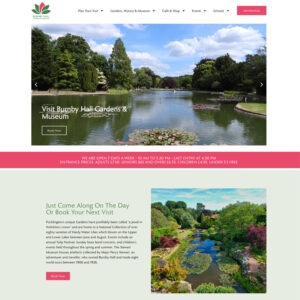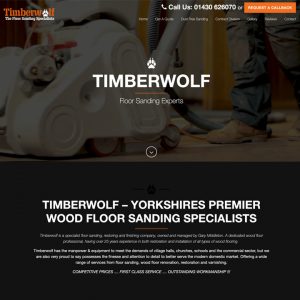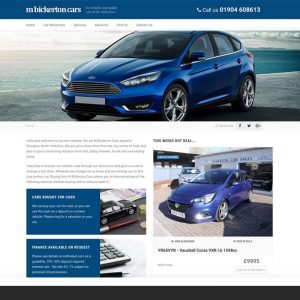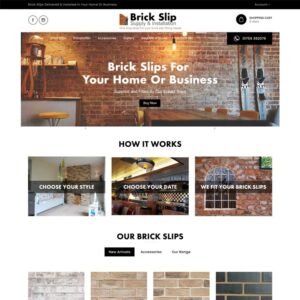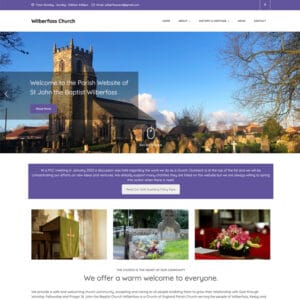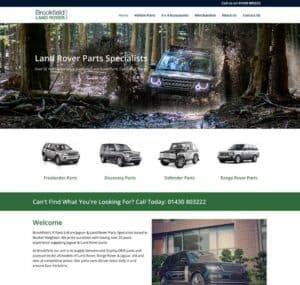JPS Media York Services
Website Design
Because looks are important. You need your website to impact and grab your customers from first impression.
What is Website Design?
Website design incorporates many of the same elements as traditional design, such as consideration of layout, colour, graphics, content and fonts, all of which can be used together to make the site visually compelling. Behind this visual aspect the website design and development team also consider how user-friendly the design is, thinking about ease of navigation, compatibility, interactivity, use of multimedia tools and technology. The perfect website draws the attention of the viewer in under three seconds and holds that attention through being easy to use and providing the information the viewer is searching for in a way which is clear and concise. Website design teams combine innovative artistic vision with a knowledge of the brand or personality of the client and technical knowledge including HTML, the most commonly used language in web design, how to make the site compatible with the various browsers and operating systems and the simplification of information retrieval for the end user.
When designing a website there are a number of key factors which need to be taken into consideration. The layout focuses on how the text, graphics and advertisements are arranged with a view to ensuring that the site visitor can find the information they need at a glance. Colour choices are dependent on the purpose of the website and the expected clientele and should reflect brand image or personality within the scope of web-safe colours. Content should be relevant, useful and easy to understand, provide the viewer with information and be of interest to the reader. When taking search engine optimisation into account, content should be of a suitable length and include relevant keywords. Use of different font styles and type sizes can enhance the viewer experience yet should remain consistent and within the widely accepted range of fonts. Graphics, including photos, clip art, icons and logos need to not be congested or slow to load as the reader will quickly lose interest.
Website Development
Because you want your website to do the work for you. Functionality is important and can make mundane tasks fast and easy.
What is Website Development?
The term website development is often used interchangeably with the term website design, yet the two are completely different. While website design focuses on the front-end, that is, what the customer or reader views, website development concentrates on the back-end or functionality of the website as a whole. This covers aspects such as navigation and interactivity, programming and site maintenance. A great web developer focuses on how the whole website works and how the viewer moves around it to retrieve the information they need. The main non-design elements of building a website are writing markup and coding for both client-side and server-side, with focus on improving and updating usability, security, performance and the ability of the website to grow and evolve. Web developers use a wide variety of languages and tools to create a website which runs smoothly and actively encourages the viewer to stay on the page.
Server-side web development concentrates on programming which affects the server and is invisible to the client. We use multiple server side language, either determined by the client or the project and scope. Client-side web development focuses on the code which directly affects the visitor and what happens within their browser, using programming languages such as JavaScript, Flash, jQuery, Valid HTML and CSS. JPS Web Design take into account the visual aspects of web design and the on-going functionality of the website across a variety of browsers and operating systems including mobile devices and ensures that each web page remains useable even where certain design aspects do not show up on a particular browser. Ease of navigation is key for encouraging visitors to stay on the site, including an effective search engine to assist in navigation around larger websites.
Search Engine Optimisation
Because if people can't find your website then its not working for your business.
What is Search Engine Optimisation?
Search engine optimisation is the process of adapting a website to increase its visibility on the internet through improving its ranking on various search engines. A higher ranking and an increase in the number of times the website features on a search engine results page (SERP), the more visitors that website will receive. The statistics speak for themselves. A typical SERP will feature ten listings, and the ten listings which appear on page one receive 89.71% of the total hits between them, with almost half of those (42.25%) being the top listing, 11.94% the second and 8.47% the third link. The second page of a search sees only 4.37% of internet users clicking on the links, while page three gets 1.07% of the market share. After page five the entirety of the rest of the results, which can number in the millions, see just 1% of people following the links between them. Therefore, to successfully drive traffic to a website it really needs to feature on the first page of any search engine results for relevant keywords.
Good SEO focuses on accessibility, usability and targeted keyword research in order to improve the ranking of the website in question across the most commonly used search engines. Analytics tools are used to determine the most relevant keywords for the business or client. These keywords can then be included in content on the site itself and for inbound link building to generate a higher search ranking. Regular updating of the site with fresh content including the relevant keywords increases user enjoyment and results in a higher ranking. Accessibility and usability involve making your site work for you in terms of both users and search engines. A search engine optimised website will be simple for the user to navigate but also make it easy for search engines to crawl by providing all the relevant information in the correct format and a logical layout. Search engine optimisation is a long term marketing strategy which, so long as content is updated regularly, will not only get your website to page one but will keep it there, resulting in a significant increase in ROI.
Online Marketing
Because marketing matters! For any business to succeed you need a good customer base of regular clients.
What is Online Marketing?
Online marketing is the promotion of products and services through the internet using a set of powerful tools and methodologies. The extra channels and marketing mechanisms available on the internet mean that online marketing can include a far wider range of elements than traditional business marketing. There are many advantages to online marketing, not the least of which is that the internet today is the first port of call for the majority of customers. Even those who are not planning on shopping directly online will often use the internet to search for stores or businesses in their local area. Online marketing is also a cost-effective procedure where wide numbers of people can be reached at a fraction of the cost of the same campaign using traditional marketing methods. Consumers can be effectively demographically targeted much more easily and analytics tools can collect efficient statistical results without incurring extra costs. Most consumers appreciate the flexibility and convenience of online shopping, which they can do at any time of day or night from the comfort of their own homes.
Online marketing and advertising can take many different forms, from clear-cut adverts right through to subtle ways in which to get the brand image or company name widely seen. With focus on the primary business models of e-commerce, affiliate marketing, local search and lead-based websites, online marketing uses both creative and technical tools in order to drive traffic to a website and to imprint the company name and brand image into the minds of internet users in a positive way. By leveraging consumer data and customer relationship management systems, businesses and individuals are able to target specific demographics and a wider audience depending on the particular needs of the business.
Bespoke Design & Development
Because everyones unique including our businesses.
Bespoke Website Design
The term bespoke originates in clothing design, where it has been used for many years to define tailor-made or custom-designed clothing. In recent years it has come into use in the world of information technology as a reference to custom-designed websites, services and products. A custom-built or bespoke website can be specifically tailored to the needs of the business, individual or organisation. While bespoke websites take a little longer to design and develop than those constructed from templates, there are many advantages to the business and the end user. By choosing a custom-built website rather than one which is developed from a pre-designed template the client is able to include exactly what they need on the site, no more and no less, in exactly the way they wish to include it.
A bespoke website can be designed to cater for the individual ideas and budget of the business, individual or organisation. There are unlimited options as to the number of pages included and the website can be constantly updated, adapted and enlarged according to business needs and budget limitations. Bespoke websites offer the opportunity to create a unique site which stands apart from competitors and attracts and holds the attention of internet users, taking into account the brand image or personality of the client and using attractive and original design features which make a great impression on site visitors.
Bespoke Website Development
Bespoke website development meets the specific operational needs of each business, organisation or individual, looking at both the server and client side of operations. Using complex coding and in some cases creating languages, bespoke website developers are able to create a product which is unique and produced in line with branding with enhanced usability and functionality. A bespoke website allows the client to retain full control over what, where and how each aspect of their website is incorporated and results in a finished product which looks and feels more professional than those developed from a template.
How the background coding is done affects the success of a website in terms of search engine friendliness. Having a bespoke, unique website makes it stand out not just to the end user but also to the search engine crawlers. Bespoke websites can be scaled and adapted to accommodate business growth and increased budget capacity with ease, incorporating new features which can be implemented as and when the budget allows. Developers and designers of bespoke websites will initially spend time analysing business needs and customer demographics in order to incorporate this information into the overall design in a way which encourages more visitors to the site and improves search engine rankings.
Still Not Sure?
